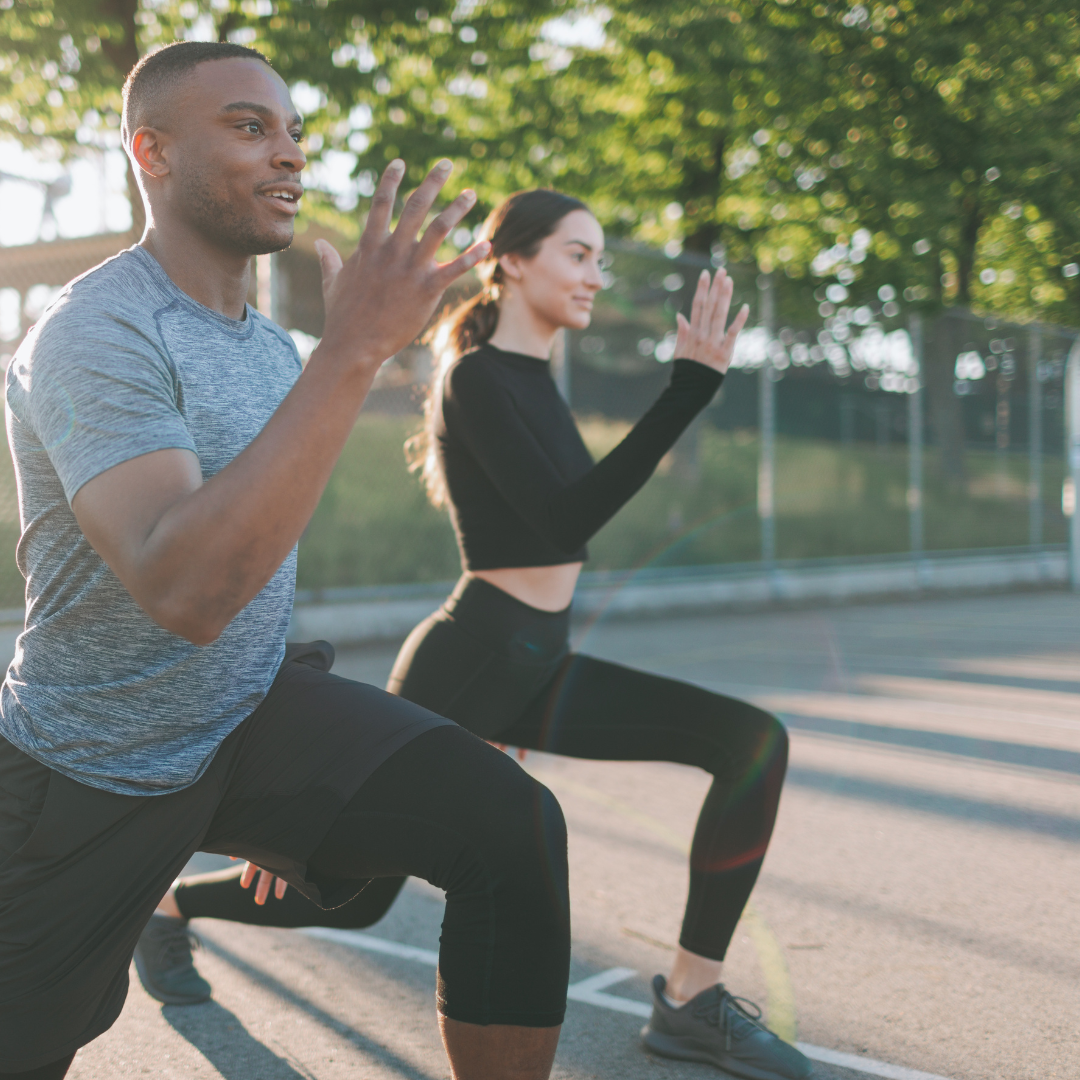How physical fitness boosts cognitive performance.
In other articles, we touch upon the interplay between diet and fitness, as well as the relationship between diet and brain health, but what about the connection between exercise and brain health? You may feel better after a workout, but do you think better as well?
A growing body of research suggests that you do, and after you read this article, you will be motivated to step up your fitness game, as a reward in and of itself, and also as a means to improve your cognitive performance. And as part of your work and workout routines, we encourage you to take advantage of the abundance of nutrients in SaladPower all-organic smoothies to further synergize your overall health.
The Ways Fitness Improves Brain Health
The ways that physical fitness improves brain health are manifold. In fact, exercise may alter the very structure of your brain. In a 2014 study, researchers found that increased cardiorespiratory fitness levels correspond with a greater volume of gray matter in the hippocampus and prefrontal cortex.[1] Gray matter refers to the dense neuronal cell bodies in the central nervous system that are essential to day-to-day functions, such as the control of memory, emotions, and movement.[2]
As you age, it is imperative that you take actions to maintain a healthy volume of gray matter to prevent cognitive decline. A study of 19 obese adults between 65 and 75 years of age revealed that individuals with superior fitness levels exhibited greater hippocampal volumes, more rapid processing speed, and better executive function.[3]
A number of studies corroborate these findings. In a larger study of 165 older adults, researchers observed correlations between cardiorespiratory fitness levels and larger hippocampal volumes, which, in turn, correlate with superior memory performance.[4]
Cardiorespiratory fitness is a term used to describe the ability of the circulatory and respiratory systems to carry oxygen to muscles in the body to use as energy during exercise.[5] It is such an important indicator of human health and mortality that the American Heart Association has lobbied for it to be assigned as a “vital sign.”[6]
Regular fitness has also been linked to a reduction in dementia and the onset of cognitive disorders like Alzheimer’s disease.[7] By studying 454 brain autopsies, researchers found that even minimal levels of exercise correlated with better cognition.[8]
Though many studies use older individuals to study the relationship between fitness and cognitive decline, there are a number of compelling studies showing the same is true among younger populations. A 2019 study of 1,206 healthy, young adults demonstrates that physical fitness has positive (and potentially even protective) effects on brain structure and cognition.[9]
It is important to note that these studies show correlations rather than straightforward cause-and-effect conclusions, but we believe the correlative evidence linking fitness to brain health is too overwhelming to ignore.
We hope this articles illuminates the importance between fitness and brain health, and as always, we invite you to incorporate SaladPower’s nutritious, all-organic smoothies into your health routine!
[1] Erickson, K. I., Leckie, R. L., & Weinstein, A. M. (2014). Physical activity, fitness, and gray matter volume. Neurobiology of Aging, 35(2), S20–S28. https://doi.org/10.1016/j.neurobiolaging.2014.03.034
[2] Mercadante, A., & Tadi, P. (2021). Neuroanatomy, Gray Matter. PubMed; StatPearls Publishing. https://www.ncbi.nlm.nih.gov/books/NBK553239/
[3] Bugg, J. M., Shah, K., Villareal, D. T., & Head, D. (2012). Cognitive and neural correlates of aerobic fitness in obese older adults. Experimental aging research, 38(2), 131–145. https://doi.org/10.1080/0361073X.2012.659995
[4] Erickson, K. I., Prakash, R. S., Voss, M. W., Chaddock, L., Hu, L., Morris, K. S., White, S. M., Wójcicki, T. R., McAuley, E., & Kramer, A. F. (2009). Aerobic fitness is associated with hippocampal volume in elderly humans. Hippocampus, 19(10), 1030–1039. https://doi.org/10.1002/hipo.20547
[5] Raghuveer, G., Hartz, J., Lubans, D. R., Takken, T., Wiltz, J. L., Mietus-Snyder, M., Perak, A. M., Baker-Smith, C., Pietris, N., Edwards, N. M., & American Heart Association Young Hearts Athero, Hypertension and Obesity in the Young Committee of the Council on Lifelong Congenital Heart Disease and Heart Health in the Young (2020). Cardiorespiratory Fitness in Youth: An Important Marker of Health: A Scientific Statement From the American Heart Association. Circulation, 142(7), e101–e118. https://doi.org/10.1161/CIR.0000000000000866
[6] Ross, R., Blair, S. N., Arena, R., Church, T. S., Després, J. P., Franklin, B. A., Haskell, W. L., Kaminsky, L. A., Levine, B. D., Lavie, C. J., Myers, J., Niebauer, J., Sallis, R., Sawada, S. S., Sui, X., Wisløff, U., American Heart Association Physical Activity Committee of the Council on Lifestyle and Cardiometabolic Health, Council on Clinical Cardiology, Council on Epidemiology and Prevention, Council on Cardiovascular and Stroke Nursing, … Stroke Council (2016). Importance of Assessing Cardiorespiratory Fitness in Clinical Practice: A Case for Fitness as a Clinical Vital Sign: A Scientific Statement From the American Heart Association. Circulation, 134(24), e653–e699. https://doi.org/10.1161/CIR.0000000000000461
[7] Even low-level activity may help reduce dementia risk. (2019, January 25). Www.medicalnewstoday.com. https://www.medicalnewstoday.com/articles/324250
[8] Buchman, A. S., Yu, L., Wilson, R. S., Lim, A., Dawe, R. J., Gaiteri, C., Leurgans, S. E., Schneider, J. A., & Bennett, D. A. (2019). Physical activity, common brain pathologies, and cognition in community-dwelling older adults. Neurology, 92(8), e811–e822. https://doi.org/10.1212/wnl.0000000000006954
[9] Opel, N., Martin, S., Meinert, S., Redlich, R., Enneking, V., Richter, M., Goltermann, J., Johnen, A., Dannlowski, U., & Repple, J. (2019). White matter microstructure mediates the association between physical fitness and cognition in healthy, young adults. Scientific Reports, 9(1). https://doi.org/10.1038/s41598-019-49301-y

